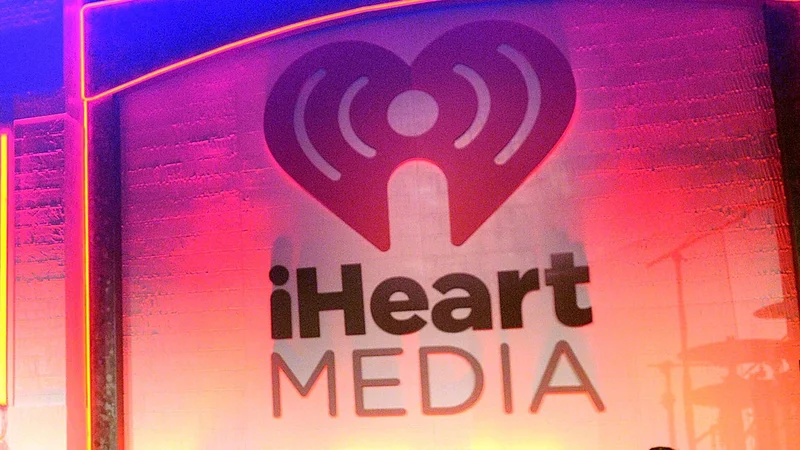Every few months, the headlines flare up like a brush fire. "Mass Layoffs at iHeartMedia," they scream. You read the reports, you see the names of beloved local DJs posting farewell videos on Instagram, and you feel that familiar pang of dread. An Open Letter to Bob Pittman and Other iHeartMedia Execs As Layoffs Hit…Again captured it perfectly, describing the "existential dread" that follows, the fear that "the industry is dying and anyone who remains is going down with a sinking ship."
I read those same reports, and when I saw the numbers—another round of cuts in Los Angeles, Nashville, Philadelphia—I honestly just sat back in my chair, speechless. Not because I saw a sinking ship, but because I was watching something far more profound. We're not witnessing a death. We're witnessing a metamorphosis. And like any biological transformation, it is messy, painful, and utterly necessary.
What we're seeing is the corporate equivalent of a caterpillar dissolving itself to become a butterfly. The legacy broadcast model, the one-to-many blast from a giant antenna, is the caterpillar. It was a magnificent creature that dominated its ecosystem for a century. But its environment has changed. Now, the company is breaking down that old structure—the very cells of its former self, represented by these heartbreaking job losses—to reallocate that energy toward a new form.
Look at the data behind the drama. In the last quarter, iHeart's traditional broadcast revenue was down 5.4%. That's the caterpillar shrinking. But in the same period, its Digital Audio Group revenue was up 13%. That’s the butterfly’s wings beginning to form. This isn't a cost-cutting measure born of desperation; it's a strategic, albeit brutal, reallocation of resources from a fading paradigm to an exploding one. They're moving from broadcasting—a shotgun blast of content—to what I call the "personal audioverse." In simpler terms, it's a shift from a world where we all tune into one thing, to a universe where audio is built around each one of us.

So what does this new world, this "butterfly," actually look like? Forget the image of a dusty radio on a shelf. Imagine an audio ecosystem that lives in your pocket, in your car, in your smart speaker, constantly learning and adapting to you. This is the future iHeart is running toward, and it's a future powered by digital streams, on-demand podcasts, and yes, artificial intelligence.
When I hear their CEO, Bob Pittman, talk about "modernization initiatives" and AI, I don't hear corporate jargon. I hear the blueprint for a revolution. This is the kind of breakthrough that reminds me why I got into this field in the first place. This isn't about replacing humans with robots; it's about using technology to do what humans could never do at scale: create a unique audio experience for every single listener. What if your morning "show" wasn't just a linear broadcast from 6 to 10 AM, but a personalized playlist of local news, traffic for your commute, a segment from your favorite host, and a new song from an artist you're about to love—all assembled for you, on-demand, the moment you ask for it?
This isn't some far-off science fiction. The speed of this is just staggering—it means the gap between today and tomorrow is closing faster than we can even comprehend. We're already seeing the seeds of it. While iHeart cuts legacy positions, it’s also signing deals like the one with Cleveland State Athletics to provide hyper-local sports coverage. This isn't a contradiction; it's the strategy. They are shedding the high-cost, low-engagement parts of their old model to double down on niche, passionate communities that thrive in the digital space.
Of course, we can't—and we shouldn't—ignore the human cost. This is the ethical consideration we have to hold in our minds. The shift from scribes to the printing press was a monumental leap for human civilization, but it was a personal catastrophe for the scribes who lost their livelihoods. Our responsibility is to be honest about this pain and to demand that companies and society find ways to support those displaced by these technological waves, rather than pretending the change isn't happening. But to halt the printing press to save the scribes would have been a betrayal of the future.
Let’s be clear. The headlines about layoffs are the noise. They are the loud, jarring, and emotionally resonant static that distracts from the bigger picture. The real signal is that 13% growth in digital audio. It's the quiet, steady pulse of a new world being born. The pain for the people involved is real and deeply unfortunate, but mistaking these layoffs for the death of audio is like looking at an empty cocoon and mourning the caterpillar, completely unaware of the magnificent creature that has just taken flight. We are at the dawn of the most personal, most accessible, and most human era of audio ever created. Don't let the noise of the present deafen you to the music of the future.